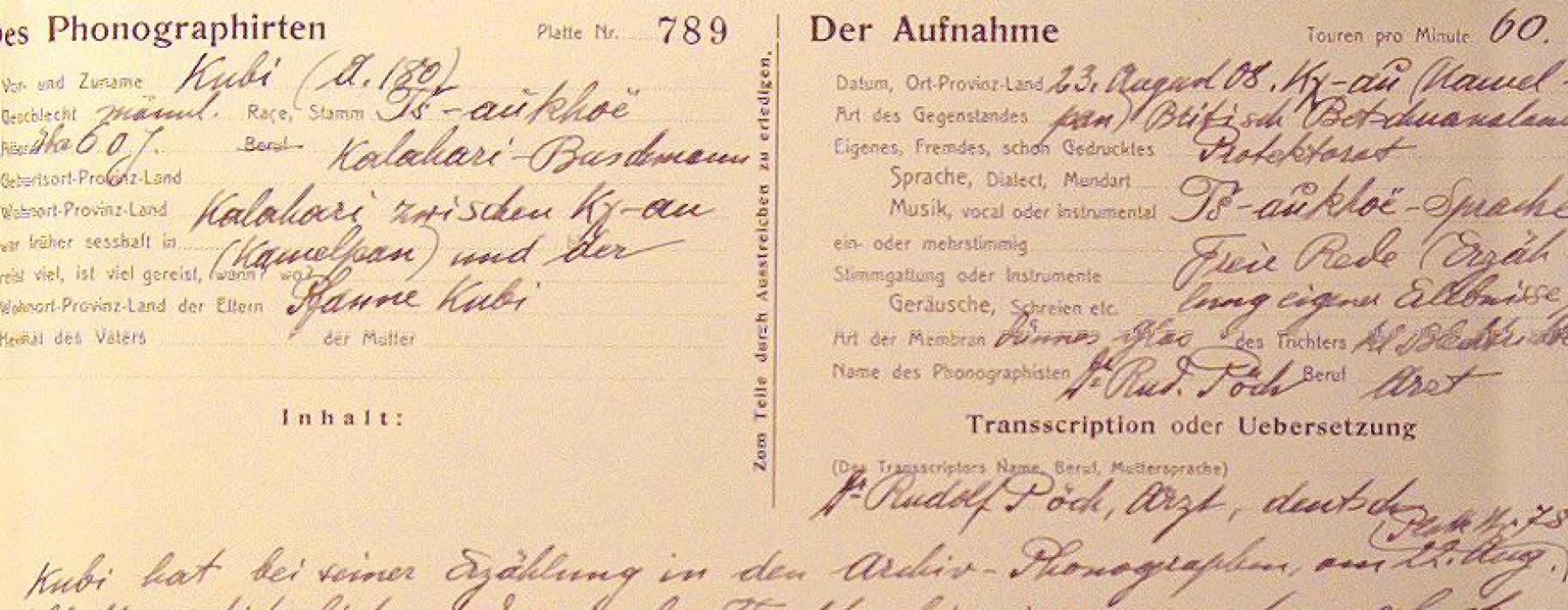
Given the enormous amount of acoustic recordings as results of imperial knowledge production, the colonial archive is remarkably silent. Those who came to act as native informants, or were subjects of research, are mostly known from images, and ethnographic texts, yet rarely appear as speakers of meaningful words. This is also the case with regard to the recording of a man whose ethnographic stage name is ‘Kubi’. He was phonographically and cinematographically recorded in the western Kalahari in 1908. The silent movie produced by the Austrian anthropologist Rudolf Pöch was post-synchronised with the sound file in the 1980s. The now sounding film is circulated widely, yet the speaker remained astoundingly mute. Anette Hoffmann’s lecture revisits the scene of recording and the archival biography of the acoustic and visual material to discuss coloniality’s selective word deafness, and what it could mean to listen closely.